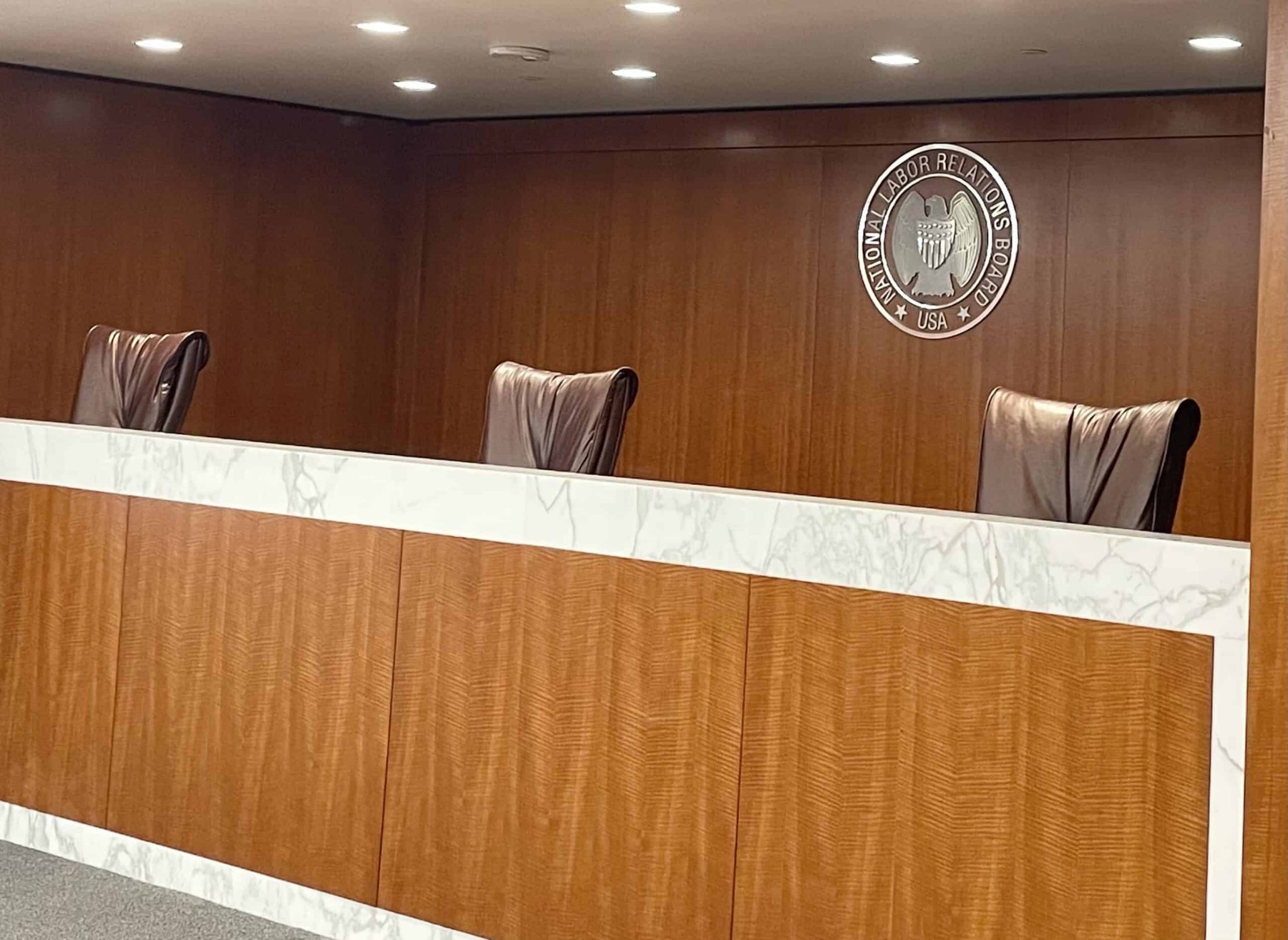
Benjamin Sachs is the Kestnbaum Professor of Labor and Industry at Harvard Law School and a leading expert in the field of labor law and labor relations. He is also faculty director of the Center for Labor and a Just Economy. Professor Sachs teaches courses in labor law, employment law, and law and social change, and his writing focuses on union organizing and unions in American politics. Prior to joining the Harvard faculty in 2008, Professor Sachs was the Joseph Goldstein Fellow at Yale Law School. From 2002-2006, he served as Assistant General Counsel of the Service Employees International Union (SEIU) in Washington, D.C. Professor Sachs graduated from Yale Law School in 1998, and served as a judicial law clerk to the Honorable Stephen Reinhardt of the United States Court of Appeals for the Ninth Circuit. His writing has appeared in the Harvard Law Review, the Yale Law Journal, the Columbia Law Review, the New York Times and elsewhere. Professor Sachs received the Yale Law School teaching award in 2007 and in 2013 received the Sacks-Freund Award for Teaching Excellence at Harvard Law School. He can be reached at [email protected].
When President Trump removed Gwynne Wilcox from her seat on the National Labor Relations Board, he left the Board without a quorum. Since that time, the Board has been legally incapacitated: it cannot fulfill its statutory function of adjudicating unfair labor practice cases. At the time of Wilcox’ removal, I argued that by incapacitating the Board in this way, Trump may have suspended Garmon preemption – the doctrine that prohibits states and cities from regulating conduct that is either protected or prohibited by federal labor law.
Incapacitating the Board suspends Garmon preemption because Garmon preemption is all about deference to the administrative capacity of the Board. As the Supreme Court explained in an early case, labor preemption flows from the fact that when Congress passed the federal labor statute it “did not merely lay down a substantive rule of law to be enforced by any tribunal competent to apply law generally to the parties. It went on to confide primary interpretation and application of its rules to a specific and specially constituted tribunal:” the NLRB. Or as the Court wrote in Garmon itself, “the unifying consideration of our [labor preemption] decisions has been regard to the fact that Congress has entrusted administration of the labor policy for the Nation to a centralized administrative agency.” Even more to the point, the Court has described Garmon preemption as the “zone protected and reserved for . . . NLRB jurisdiction.” Without a functioning Board, then, the rationale for Garmon preemption simply disappears.
A new decision from the U.S. Court of Appeals for the Fourth Circuit, published yesterday and authored by Judge Berner, adds significant support for this theory. The decision, in National Association of Immigration Judges v. Owen, does not involve the NLRB nor does it involve preemption, but the reasoning in the case is precisely analogous to the argument about Garmon.
Owen involves the question of whether the Civil Service Reform Act (CSRA) – which creates a “uniform scheme for administrative and judicial review of covered federal employee personnel actions” – deprives district courts of jurisdiction to hear claims by federal employees challenging adverse employment actions. As the court of appeals explains, the long-established and clear answer to this question had been, until recently, a simple “yes.” With the CSRA, Congress established an administrative agency – the Merit Systems Protections Board (MSPB) – and gave it authority to adjudicate federal employees’ employment claims. The CSRA also creates the “Special Counsel,” who is charged with, inter alia, investigating allegations of prohibited personnel actions and “request[ing] that the MSPB take corrective action.” Because Congress had established a “comprehensive” structure for the processing federal employment claims, district courts were stripped of jurisdiction to hear cases involving federal employment.
But in Owen, the Fourth Circuit held that this long-established rule depends on the administrative apparatus established by the statute actually functioning as Congress intended. As the court put it:
It has been well-established that Congress’s intent for the CSRA to preclude district court jurisdiction is fairly discernible in the statutory scheme. That conclusion can only be true, however, when the statute functions as Congress intended. . . . To maintain Congress’ intent, the MSPB and Special Counsel must function such that they fulfill their roles prescribed by the CSRA. If, for example, the Senate-confirmed roles in the MSPB and Special Counsel go unfilled, or if the agencies fail to perform their duties such that covered employees’ claims are not adequately processed, then the framework of the CSRA would be thwarted. Either situation would defeat congressional intent, as Congress enacted the CSRA for the express purpose that the merit system function and that claims be addressed adequately and efficiently.
The court then takes judicial notice of the fact that President Trump removed the Special Counsel and two members of the MSPB, leaving the MSPB without a quorum. And the court holds that by depriving the agency of a quorum, Trump’s actions thereby “raise serious questions as to whether the CSRA’s adjudicatory scheme continues to function as intended.” The court remands to the district court to “assess the functionality of the CSRA’s adjudicatory scheme.”
Put simply, Owen holds that the CSRA strips district courts of jurisdiction because the statute establishes an alternative mechanism for adjudicating federal workers’ employment claims. If that alternative mechanism is prevented from functioning because it lacks a quorum, however, the fourth circuit holds that the reason for stripping jurisdiction from the district court no longer obtains. It’s the functioning of the agency that warrants stripping jurisdiction from the district court. So, no functional agency no jurisdiction stripping.
As is hopefully clear, the Fourth Circuit’s reasoning in Owen is identical to the reasoning underlying the argument that Garmon preemption has been suspended. Garmon holds that the NLRA strips states and cities of jurisdiction over matters protected or prohibited by the NLRA because Congress entrusted those matters to an administrative agency. The logic of Garmon thus depends – as the jurisdiction stripping function of the CSRA depends – on the functioning of the administrative agency that Congress established in the NLRA. By shutting down the MSPB, Trump has eliminated the reason to strip district courts of jurisdiction over CSRA claims. By shutting down the NLRB, Trump similarly eliminates the reason for Garmon preemption.










Daily News & Commentary
Start your day with our roundup of the latest labor developments. See all
February 12
Teamsters sue UPS over buyout program; flight attendants and pilots call for leadership change at American Airlines; and Argentina considers major labor reforms despite forceful opposition.
February 11
Hollywood begins negotiations for a new labor agreement with writers and actors; the EEOC launches an investigation into Nike’s DEI programs and potential discrimination against white workers; and Mayor Mamdani circulates a memo regarding the city’s Economic Development Corporation.
February 10
San Francisco teachers walk out; NLRB reverses course on SpaceX; NYC nurses secure tentative agreements.
February 9
FTC argues DEI is anticompetitive collusion, Supreme Court may decide scope of exception to forced arbitration, NJ pauses ABC test rule.
February 8
The Second Circuit rejects a constitutional challenge to the NLRB, pharmacy and lab technicians join a California healthcare strike, and the EEOC defends a single better-paid worker standard in Equal Pay Act suits.
February 6
The California Supreme Court rules on an arbitration agreement, Trump administration announces new rule on civil service protections, and states modify affirmative action requirements